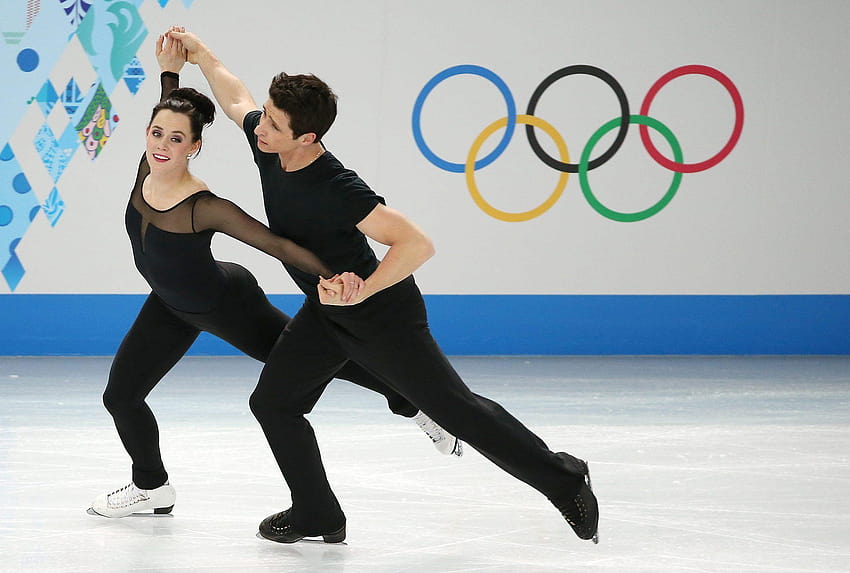Ice skating is a thrilling and challenging sport that requires a lot of dedication, skill, and practice. Whether you’re skating recreationally or with ambitions of competing at a high level, having an ice skating certification can help you measure your progress, demonstrate your proficiency, and open doors to new opportunities. But what exactly is ice skating certification, and how do you go about earning one?
In this article, we’ll dive deep into everything you need to know about ice skating certifications, including why they’re important, the different types available, and how to achieve them.
1. What Is Ice Skating Certification?
Ice skating certification is an official recognition that confirms a skater’s proficiency in certain skills or techniques. These certifications are usually awarded by governing bodies or skating organizations such as the US Figure Skating, Ice Skating Institute (ISI), or Canadian Skating Association (CSA). They’re typically achieved after a skater has passed a series of tests that assess their abilities in specific areas of skating, such as jumps, spins, or basic gliding.
Skating certifications can range from basic beginner levels to highly advanced levels, often corresponding with milestones in a skater’s progression.
2. Why Is Ice Skating Certification Important?
Whether you’re a beginner or an experienced skater, there are several reasons why obtaining certification is important:
- Tracking Progress: Certification helps track a skater’s growth and provides tangible evidence of improvement over time. It shows that you’ve mastered the skills necessary to move up to more advanced levels.
- Confidence Boost: Achieving a certification can boost your confidence, knowing that your hard work has been officially recognized by skating experts.
- Opportunities for Advancement: For competitive skaters, certification can be crucial when it comes to qualifying for higher-level competitions. Skating clubs and organizations often require skaters to hold certain certifications before they can compete.
- Employment Opportunities: If you want to teach skating or become a coach, certifications are essential. Many skating rinks require coaches to have a certain level of certification before they can teach students.

3. Types of Ice Skating Certifications
Ice skating certifications are typically divided into levels based on the skater’s age and skill level. Below are the most common types of certifications offered by various organizations:
a. Basic Skills Certifications
These certifications are ideal for beginners who are learning the foundational skills of ice skating. They usually focus on things like balance, posture, basic footwork, and stopping techniques.
- Beginner: Includes learning how to glide, skate forward and backward, and stop safely.
- Intermediate: Introduces more complex movements like turns, crossovers, and better edge control.
- Advanced: Focuses on refining the basic skills and beginning more complex elements such as jumps and spins.
These certifications are often the first step for skaters who are just starting out in their skating journey.
b. Figure Skating Certification
For skaters interested in competitive figure skating, certifications focus on specific skills like spins, jumps, choreography, and routines. There are various levels, often starting from beginner tests and moving up to championship-level certifications.
- Levels 1-10: These levels assess skills such as single and double jumps, spins, footwork, and choreography.
- Gold Certification: At this level, skaters must demonstrate exceptional mastery of figure skating techniques and are often qualified for national and international competitions.
c. Ice Dance Certifications
For those who are interested in ice dancing, there are specialized certifications that test skills unique to this discipline, such as partnering, lifts, spins, and rhythm patterns.
- Bronze, Silver, and Gold Levels: These certifications assess the skater’s ability to perform dance routines with a partner and their technical knowledge of ice dance moves.
d. Hockey Skating Certifications
For skaters focusing on ice hockey, certifications assess skills specific to hockey skating, including speed, agility, balance, and puck control.
- Beginner to Advanced: These levels cover basic skating techniques such as stopping, turning, and skating backwards, as well as advanced skills like edge control, crossovers, and handling the puck.
4. How to Get an Ice Skating Certification
Getting certified in ice skating involves a process of training, practice, and testing. Here’s a general overview of how to get your ice skating certification:
a. Choose Your Program
First, decide what type of certification you want. Are you focusing on figure skating, ice dance, hockey, or just basic recreational skating? Based on your goal, you’ll choose the right certification program.
b. Enroll in Skating Classes
While it’s possible to learn on your own, taking classes from a certified instructor is highly recommended. These classes will help you master the skills required to pass your tests and move through the certification levels. Most skating rinks offer group lessons or private lessons for skaters of all ages and skill levels.
c. Prepare for the Test
Once you’ve taken a few lessons and feel confident about your skills, you’ll need to prepare for the certification test. Test levels often require skaters to demonstrate a series of specific skills. Practice these skills in your lessons or on your own time before taking the test.
d. Take the Test
Once you feel ready, you can sign up for a test session. Certification tests are typically administered by local skating associations or federations. During the test, you’ll be evaluated on specific skills, with each skill requiring you to perform certain movements on the ice.
e. Receive Your Certification
If you pass the test, you’ll receive a certificate that indicates your proficiency level. Some skating organizations also offer badges or pins that you can display as a symbol of your accomplishment.

5. Ice Skating Certification Fees
The cost of certification varies depending on the organization and the level of certification you’re seeking. Most skating schools or rinks will charge a fee for test sessions, which can range from $20 to $150 or more per test. There may also be additional costs for classes or lessons, skating attire, and rink access.
It’s important to note that some organizations require annual membership fees to be eligible for testing or to participate in specific programs.
6. Tips for Successfully Earning Your Ice Skating Certification
- Practice Consistently: Regular practice is the key to success. Skating techniques take time to master, so make sure to practice consistently to improve your skills.
- Work with a Certified Coach: Having an experienced coach will provide personalized feedback to help you progress faster.
- Stay Patient: It can be frustrating if you don’t pass on your first attempt, but remember, progress in skating takes time. Stay patient and continue working hard.
- Focus on Fundamentals: Strong basic skills will help you progress more quickly to higher levels. Don’t rush to move on to advanced techniques before mastering the basics.
- Get Proper Gear: Make sure you have the right equipment for your level of skating, including well-fitted skates, comfortable clothing, and protective gear.

7. Benefits of Ice Skating Certification
- Recognition of Skills: Certification provides an official recognition of your abilities, which can help boost your confidence and serve as a marker of your progress.
- Opportunities for Advancement: Certification can be a stepping stone to higher-level competitions or career opportunities, such as coaching or teaching skating.
- Structured Learning: Certification programs provide a structured framework for learning that helps you focus on specific areas of improvement, ensuring you progress systematically.
- Access to Skating Communities: Many skating organizations offer memberships to skaters who pass certification levels, giving you access to a community of other skaters and events.
Conclusion
Whether you’re skating for fun or aiming for a competitive career, earning an ice skating certification can enhance your experience on the ice. It not only provides tangible goals and milestones but also builds your confidence, strength, and technique. By selecting the right certification program, preparing through lessons and practice, and staying committed to your goals, you can reach new heights in your ice skating journey. So, lace up your skates, aim for your next certification level, and enjoy the thrill of skating with the knowledge that your skills are being recognized.

